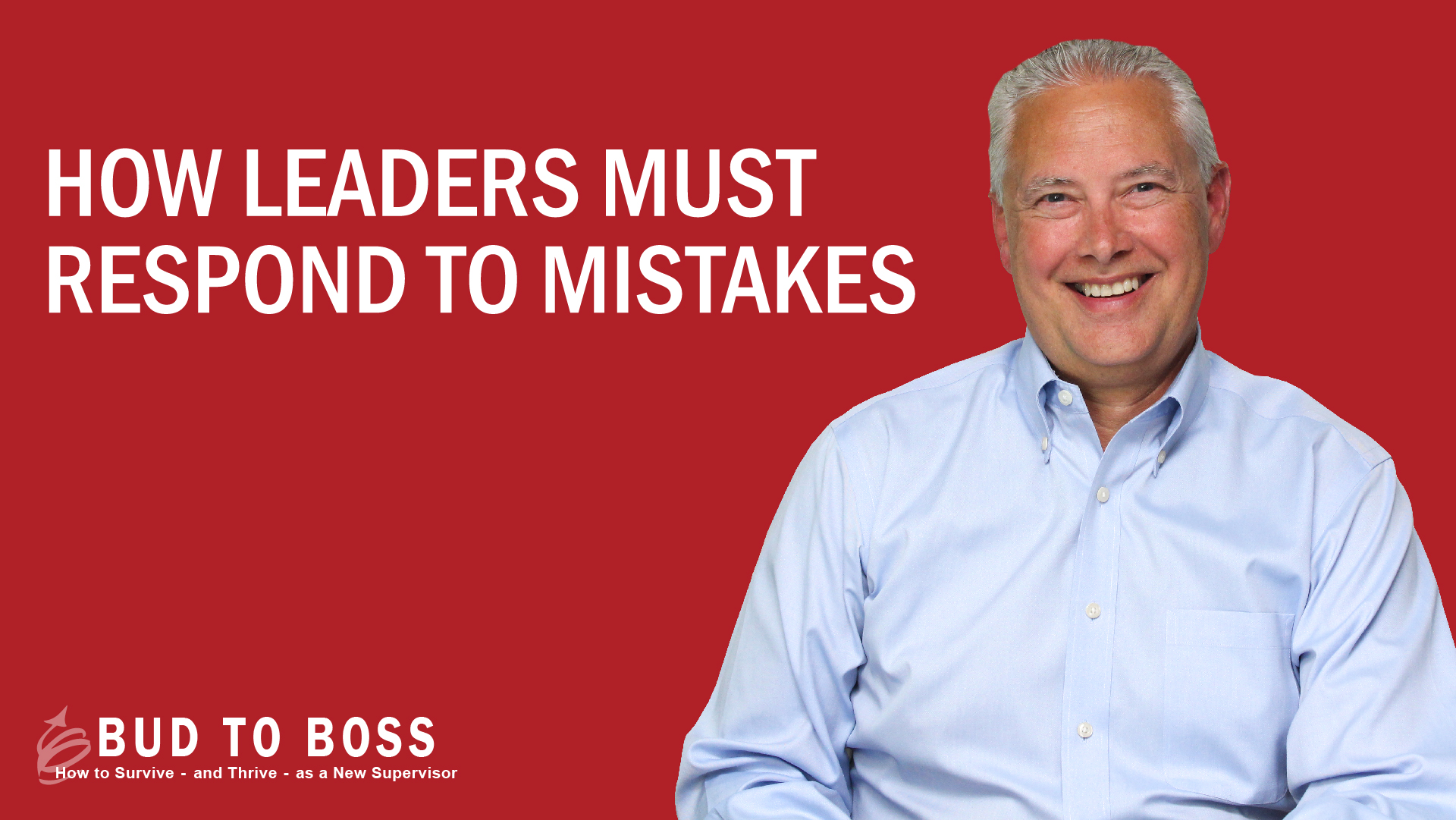By Kevin Eikenberry
You’ve got questions and we’ve got answers. Hi, I’m Kevin Eikenberry, answering the questions that new leaders ask us. Actually, it’s our goal to help all leaders be more productive, successful, and confident. And today I’m answering a question about mistakes and our responses to them. Are you ready? Let’s go.
Here’s the question I’ve been asked:
Kevin, as a leader, how should I respond to mistakes?
Well, here’s what I’ve learned. There are four basic approaches or four basic ways that we respond to mistakes, both personally and as a leader. Here they are.
Number one is we hide them. If we don’t tell anybody about them, then no one’s going to know. And maybe that makes us feel better. Number one, we hide them.
Number two is we say, uh oh, made a mistake, and we sort of don’t feel very good about it. Maybe there’s a little guilt. It’s just, oh, hopefully we can move on past it.
Number three is we blame. Well, you know, there’s a mistake, but it really wasn’t me. It was them. It was the economy. It was the policy. It was somebody else. It wasn’t me. W e blame.
Or the last approach is we learn from the mistake. So we can hide them. We can be guilty about them. We can blame others about them, or we can learn from them. Here’s the question. Which of those things do you want your team to do?
I’m guessing I know: you want them to learn from them, right? We’re humans. We’re going to make mistakes. Here’s the question. They’re are you hearing about their mistakes? If you’re not, they’re likely hiding them, right? If they’re responding to mistakes by blaming, that’s not necessarily what you want. Here’s the thing. However you’re seeing them respond to mistakes is likely how they see you responding to mistakes.
Hmm. That whole role model thing showing up again. Right. So what’s the solution? How should we be responding to them for ourselves? But also as a leader and as a role model? Number one is share your mistakes.
Yep. As a leader, no one should hide them. I want you to share them. I want you to talk about the lessons. I want you to talk about the uh oh. I even want you to talk about how you felt about it. And then I want you to say and here’s what we’re going to do. Here’s what I learned. Here’s what I don’t want to repeat. So share yours, and they are more likely to share theirs. Right? Second, celebrate the mistakes of others as learning opportunities.
We don’t need to say yay rah, you screwed up. But we can say, Hey, there’s a chance for us to learn here. So we can celebrate mistakes. We can look for what we can learn from them. Like as long as people aren’t breaking the law or making the same mistake for the 62nd time, there’s a chance for us to learn.
And if there’s a chance for us to learn, that’s worth celebrating. So mistakes and our response to them matters a lot. Not just for ourselves, but how it shows up for the rest of our team.
Let me close with today’s tweet. When you see mistakes as an opportunity rather than a problem, you will become a more effective leader and someone people want to follow.
Hey, if you’ve got a question you’d like me to answer in a future episode, leave it in a comment, and we’ll either record a future episode or point you to where I’ve answered that question previously. There are lots more resources about questions and answers and lots more about being a new or front line leader at Budtoboss.com.
I hope you’ll take a chance to look there, and if you like this video then you should subscribe so you can get future videos in the series. I hope you’ll do that. And listen, if you want to be a learner, not just from your mistakes, but from all sorts of opportunities as a leader, check out our Remarkable Masterclasses at RemarkableMasterclass.com where there are lots of powerful ways to learn to be a more effective leader.
Hope you’ll do that. And I hope to see you here for another video soon.


0 comments